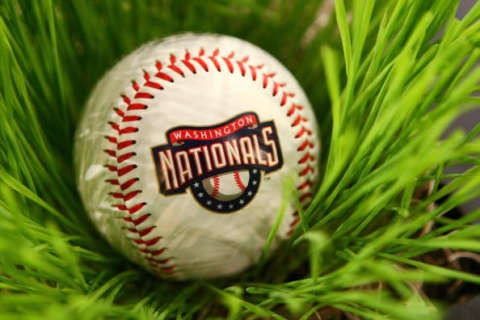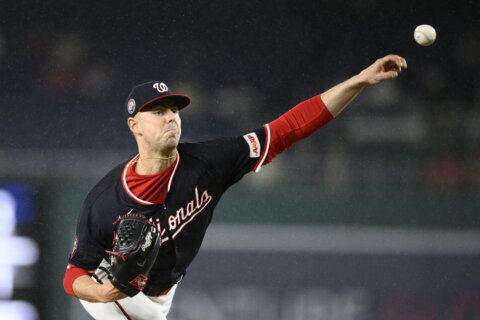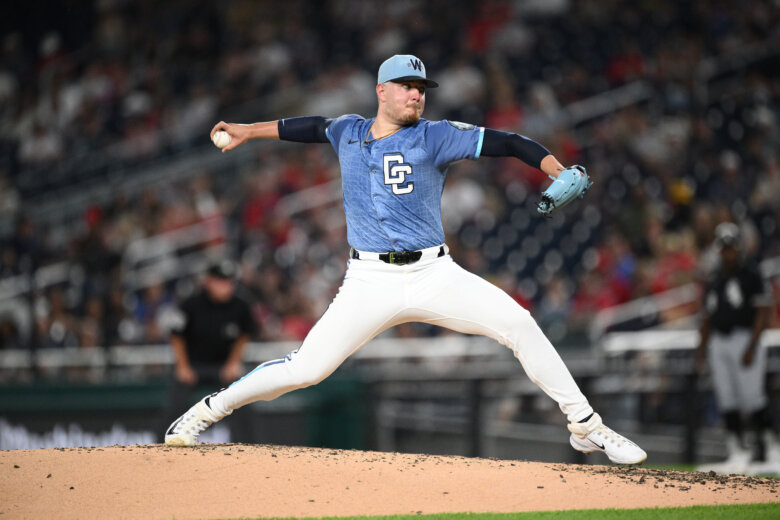WASHINGTON — By trading two-time All-Star pitcher Tyler Clippard to the Oakland Athletics Wednesday night in exchange for infielder Yunel Escobar, General Manager Mike Rizzo and the Washington Nationals finally addressed their weakest position — second base.
Or did they?
There are two ways to look at the move — one which indicates the club has what it wants heading into spring training in a month, the other suggesting that the biggest move of the off-season may be yet to come.
Escobar brings a sure-handed glove to Washington. But he has played almost exclusively at shortstop, starting 986 of his 1,016 career games there. He hasn’t played second base since 2007, as a 24-year-old.
Of course, it hasn’t been long since the Nats have taken a career shortstop and transitioned him to second base. Asdrubal Cabrera — whom Rizzo traded for, and who signed with Tampa Bay earlier this offseason — hadn’t played second base since 2009, but was used almost exclusively there as a National. It generally stands to reason that if you accomplish the tasks required of a shortstop, you can manage at second base as well.
If that’s the case, Washington now has a 32-year-old second baseman under team control through at least 2016 (with a $7 million option/$1 million buyout for 2017) who has slashed .256/.318/.350 and 2.0 WAR over the past three years. That’s not bad, but it’s not all that much better than what incumbent Danny Espinosa has done. And considering Escobar’s left/right splits are nearly identical, he doesn’t seem to make that much sense in a platoon with Espinosa. He’s essentially a non-flashy, reliable, relatively low-cost stop gap ($2.5 million cheaper this year than Cabrera).
Or, he’s the Opening Day shortstop.
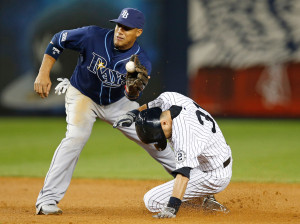
The Nationals have not been shy about dangling Ian Desmond in trade talks this off-season, with the longest-tenured player in the organization first linked in a potential deal to Seattle, then in three-way talks with the Mets and Rays, which would have landed him in New York. Desmond will hit free agency after the 2015 season, and there has been little traction to sign him to a long-term extension. Desmond was presented with a multi-year extension prior to last season, but at a rate even a high-ranking Nationals official admitted was well below his open-market value.
Factor in the other trio of impending free agents (Doug Fister, Denard Span, Jordan Zimmermann) and the willingness to deal Clippard, who is in the same boat, a Desmond trade certainly seems feasible. A deal with the Mets, even though they’re a division rival, could also be the best fit, with Daniel Murphy — whom the Nats considered as a second base solution last season — as part of the return.
Parting with Desmond wouldn’t be easy. He’s amassed the highest fWAR among major league shortstops the past three years (14.0), well ahead of the next closest player at his position, the oft-injured Troy Tulowitzki (11.8). He’s averaged 23 home runs and 22 stolen bases in three straight 20/20 campaigns. And he’s one of the more vocal, stand-up leaders in a clubhouse of introverts.
He’s also the face of the Nationals Youth Baseball Academy, the organization’s most comprehensive community effort since moving to D.C. in 2005.
In a conference call Wednesday, Rizzo said “Ian Desmond is our shortstop. He’s the leader of our team. He’s one of the best shortstops in baseball.”
All of these things are true. But Rizzo did not also say “We are not trading Ian Desmond.”
Not that he needs to. Closing the door on potential options isn’t good business, or Rizzo’s M.O. But for all the seeming vote of confidence, his statements Wednesday don’t change the situation he finds himself in. As multiple outlets floated the idea Thursday and FOX Sports’ Ken Rosenthal even pushed for the move (albeit more from the Mets’ perspective), it’s worth looking at the pros and cons of such a deal.
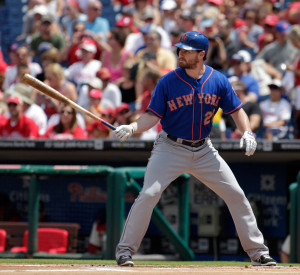
On paper, Escobar appears to give the Nats a more solid, less spectacular defensive shortstop than Desmond. Escobar has made a total of 35 errors over the past three years at short, amassing a .980 fielding percentage. Desmond, meanwhile, has made 59 miscues, good for a .968 mark. Fangraphs gave Desmond a combined 28.1 runs saved above average since 2012, while Escobar had marks of 10.8 in 2012 and 17.5 in 2013 before a disastrous -11.0 last season.
Defensive metrics are not as advanced as offensive ones in baseball, and can be fickle from year to year, but generally the two seem to be comparable on that front. It’s the offense that clearly sets them apart. That’s where looking at the difference in what Murphy might bring at second base (both in regards to Escobar and Espinosa, his likely replacement if the former moved to shortstop) helps us see whether there’s positive value in a trade.
Murphy has posted remarkably similar numbers the past three years, slashing .288/.327/.407 while averaging 9 home runs, 38 doubles and 15 stolen bases. He also brings a needed left-handed bat, potentially adding value as a partial platoon with Espinosa, who still crushes lefties. His defense has always left something to be desired, though, netting -18.4 runs over that time, per Fangraphs. That has left him with a 7.1 fWAR over that span, only marginally higher than Escobar’s 5.5.
With Escobar trying to replace Desmond in this scenario, it seems to leave the Nats at a net loss in WAR. Even if they were able to get another prospect in the deal, Murphy is also a free agent after this season, so Washington would only have one year of team control. Barring the inclusion of a major prospect in the deal, the net loss for the 2015 club doesn’t seem to be worth trying to salvage something out of Desmond’s value. But if that major prospect becomes available, whether from the Mets or another club, don’t put it past Rizzo to make a deal where he finds good value.
Follow @WTOP and @WTOPSports on Twitter and WTOP on Facebook.

